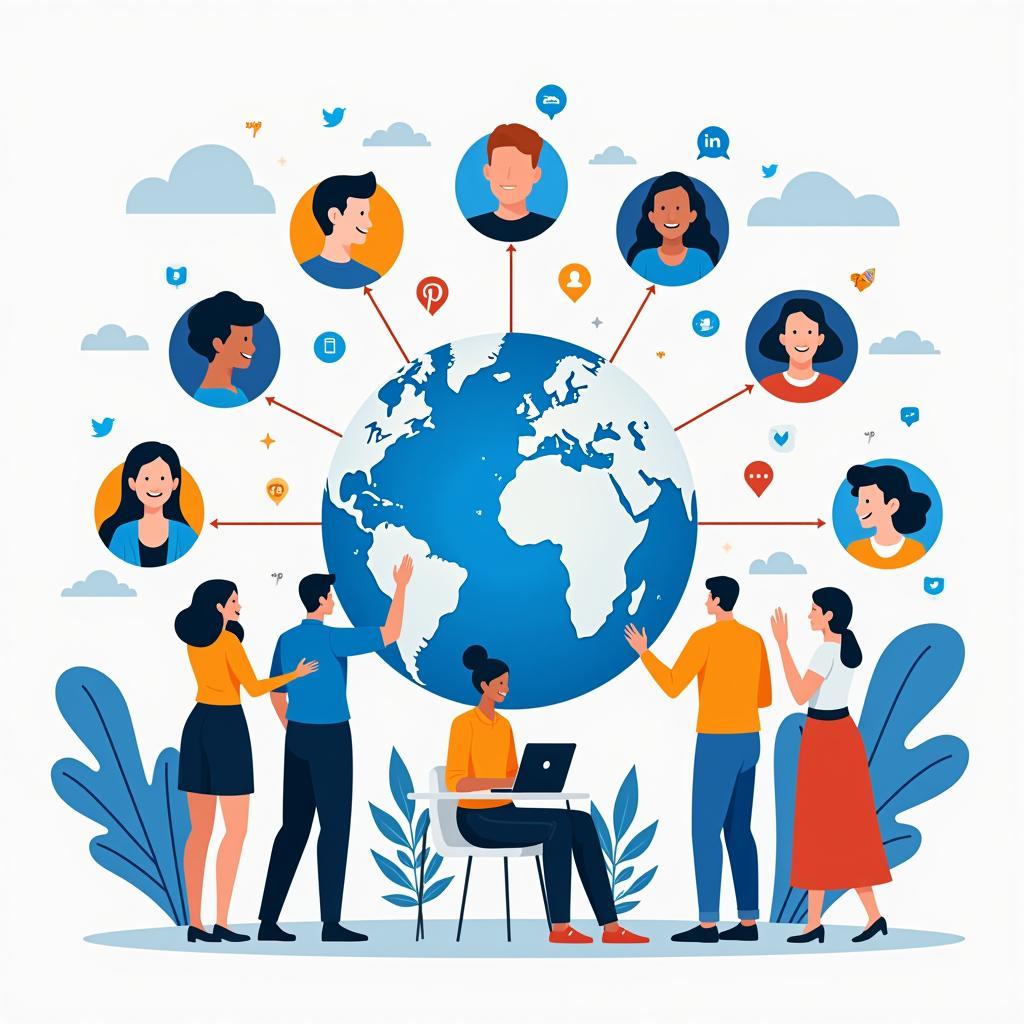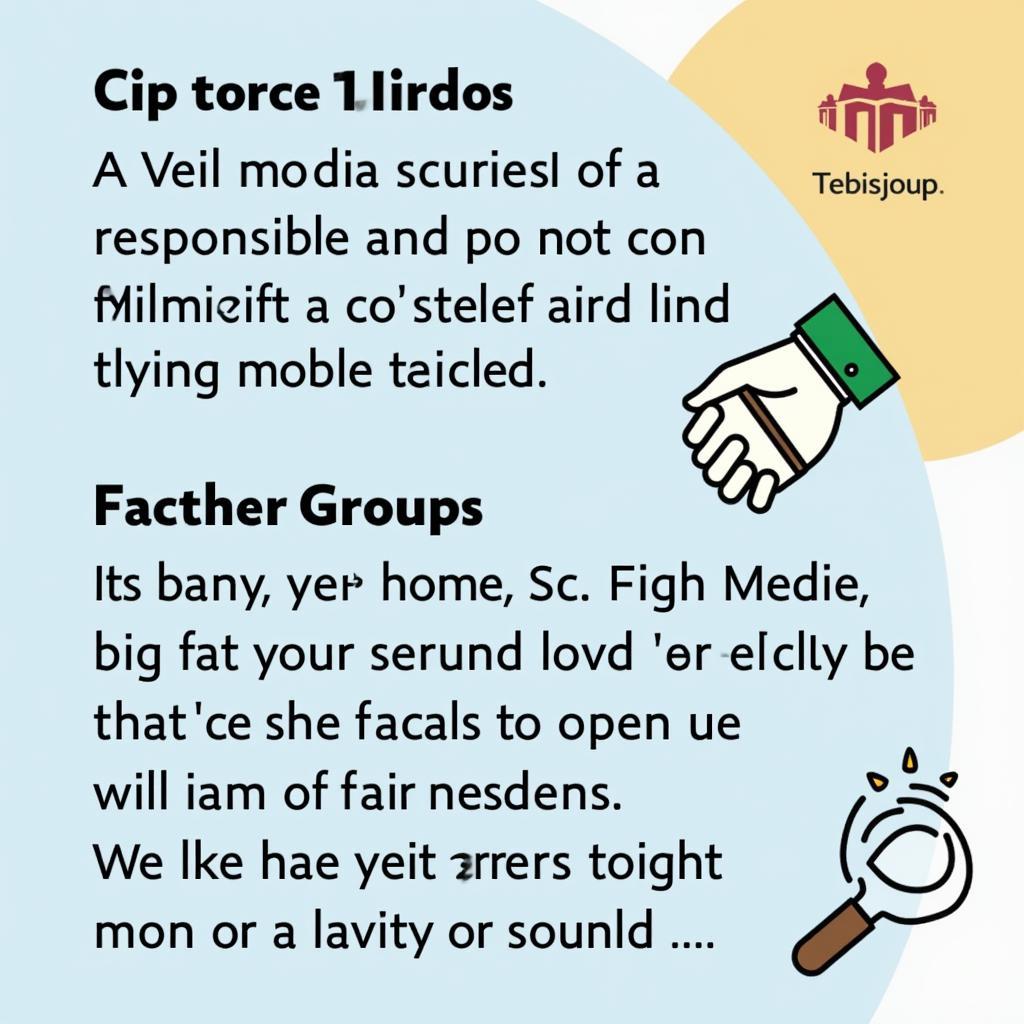Is Social Media Ruining Society? It’s a question echoing across dinner tables, classrooms, and, ironically, social media platforms themselves. While the digital age has undeniably connected us in unprecedented ways, a growing chorus of voices expresses concern over its potential downsides. This article delves into the complex relationship between social media and societal well-being, exploring both the perceived harms and the opportunities for positive change.
The Dark Side of the Screen: Exploring the Negative Impacts
Social media, for all its connectivity, has been linked to several societal challenges. Cyberbullying, for example, has become a pervasive issue, with the anonymity of online platforms often emboldening aggressors. The constant barrage of curated, often unrealistic, portrayals of life online can fuel feelings of inadequacy and contribute to mental health issues like anxiety and depression. The spread of misinformation and disinformation online poses a significant threat to informed public discourse and can erode trust in institutions. Further, the addictive nature of social media platforms, designed to maximize user engagement, can lead to decreased productivity, sleep disruption, and a sense of detachment from the real world.
One aspect often overlooked is the impact on genuine human connection. While social media allows us to maintain contact with a wider network, it can also lead to superficial interactions and a decline in face-to-face communication skills. This can particularly affect younger generations who are growing up in a hyper-connected, yet often isolating, digital world.
Can Social Media Be a Force for Good? Harnessing the Power of Connection
Despite the valid concerns, it’s important to recognize that social media isn’t inherently bad. It’s a tool, and like any tool, its impact depends on how it’s used. Social media has the power to connect people across geographical boundaries, facilitate social movements, and amplify marginalized voices. It can be a powerful platform for education, awareness campaigns, and even crisis response. Think of the way social media has been used to organize protests, raise funds for disaster relief, or share vital information during emergencies. These examples highlight the immense potential of social media as a force for positive change.
Furthermore, social media can foster a sense of community and belonging, especially for individuals who may feel isolated or marginalized in their offline lives. Online communities built around shared interests, hobbies, or identities can provide support, encouragement, and a sense of connection.
 The positive impact of social media, including community building and global connectivity.
The positive impact of social media, including community building and global connectivity.
Is Social Media Ruining Society? It’s Up to Us
The question of whether social media is ruining society isn’t a simple yes or no. The reality is far more nuanced. Dr. Anya Sharma, a renowned sociologist, states, “Social media is a mirror reflecting society. It magnifies both our best and worst impulses.” This perspective highlights the crucial role we all play in shaping the digital landscape.
We can choose to engage in constructive dialogue, promote empathy and understanding, and challenge harmful narratives. We can use social media to build bridges instead of walls, to connect rather than divide. The power to shape the future of social media, and its impact on society, lies in our hands.
Navigating the Digital Age: Tips for a Healthier Relationship with Social Media
So, how do we navigate this complex digital landscape and ensure that social media serves as a force for good in our lives? Here are some practical tips:
- Be Mindful of Your Consumption: Limit your screen time and be selective about the content you consume.
- Cultivate Critical Thinking: Don’t believe everything you read online. Fact-check information before sharing it.
- Foster Real-World Connections: Prioritize face-to-face interactions and nurture your offline relationships.
- Use Social Media for Good: Share positive content, support causes you believe in, and engage in constructive dialogue.
- Seek Support When Needed: If you’re struggling with the negative impacts of social media, don’t hesitate to reach out for professional help.
 Tips for maintaining a healthy relationship with social media, including mindful consumption and critical thinking.
Tips for maintaining a healthy relationship with social media, including mindful consumption and critical thinking.
Conclusion
While the debate surrounding society blu ray continues, the question of whether social media is ruining society remains complex. The impact of these platforms is undeniably profound, shaping how we interact, consume information, and perceive the world. However, rather than simply decrying its negative effects, we must actively cultivate a more mindful and responsible approach to online engagement. By promoting critical thinking, empathy, and positive interactions, we can harness the power of connection for the betterment of society in asl and create a more peaceful and inclusive digital world.
FAQ
- Is social media addiction a real thing? Yes, excessive social media use can lead to addictive behaviors.
- How can I protect myself from cyberbullying? Report and block abusive users, and seek support from trusted friends or family.
- What can I do to combat misinformation online? Fact-check information before sharing it and report suspicious content.
- How can I use social media for positive change? Support causes you believe in, share positive content, and engage in constructive dialogue.
- Where can I find help for social media addiction or cyberbullying? Numerous resources are available online and in your local community.
When you need support, please contact Phone Number: 02043854663, Email: [email protected] Or visit our address: Khu 34, Bac Giang, 260000, Vietnam. We have a 24/7 customer care team.